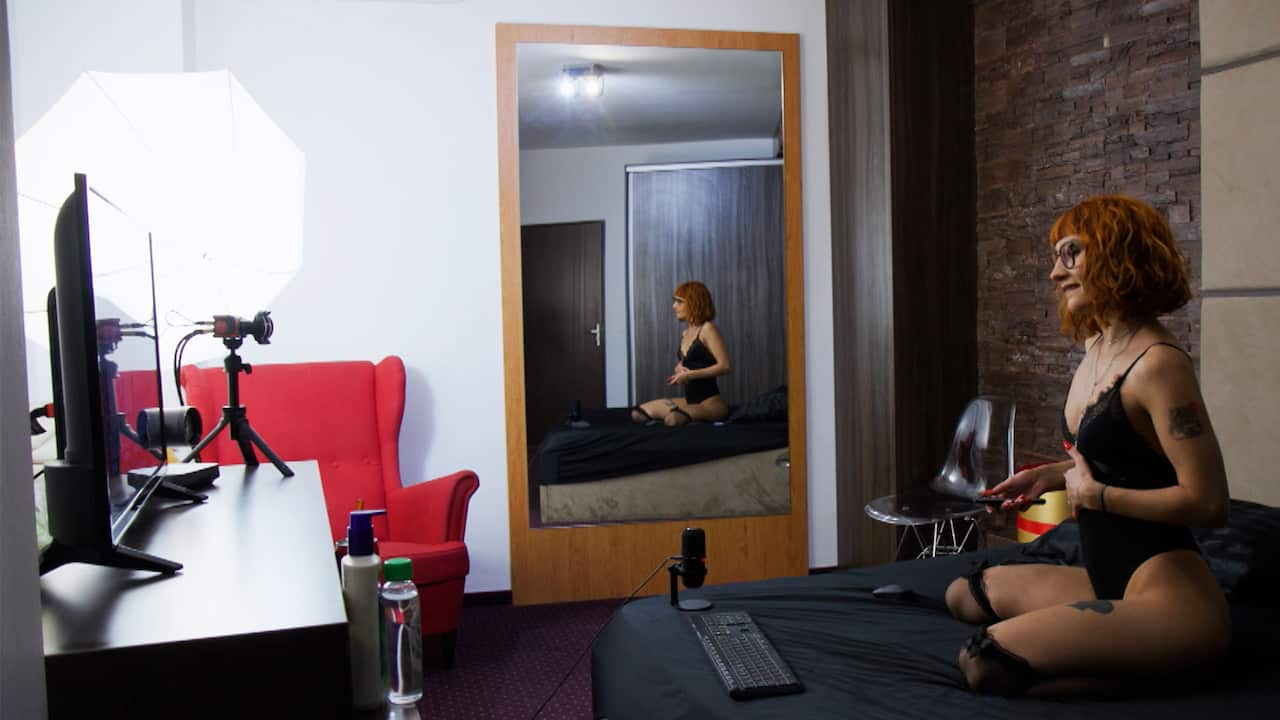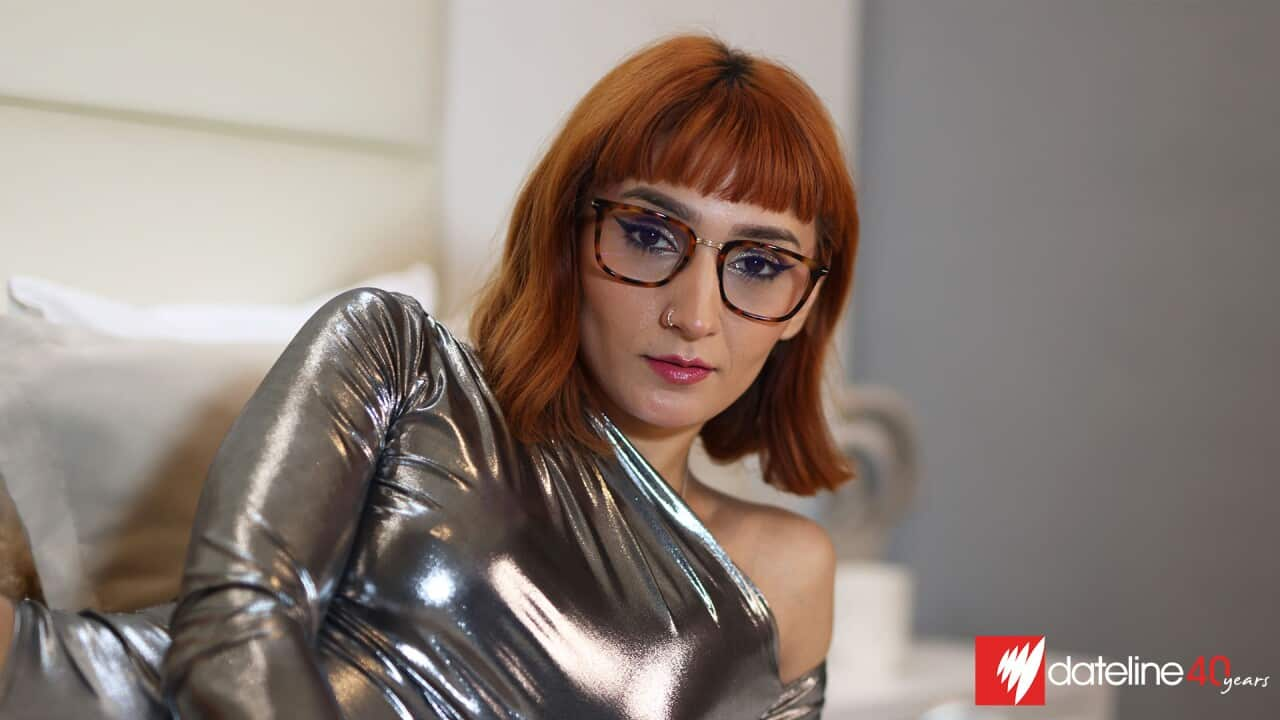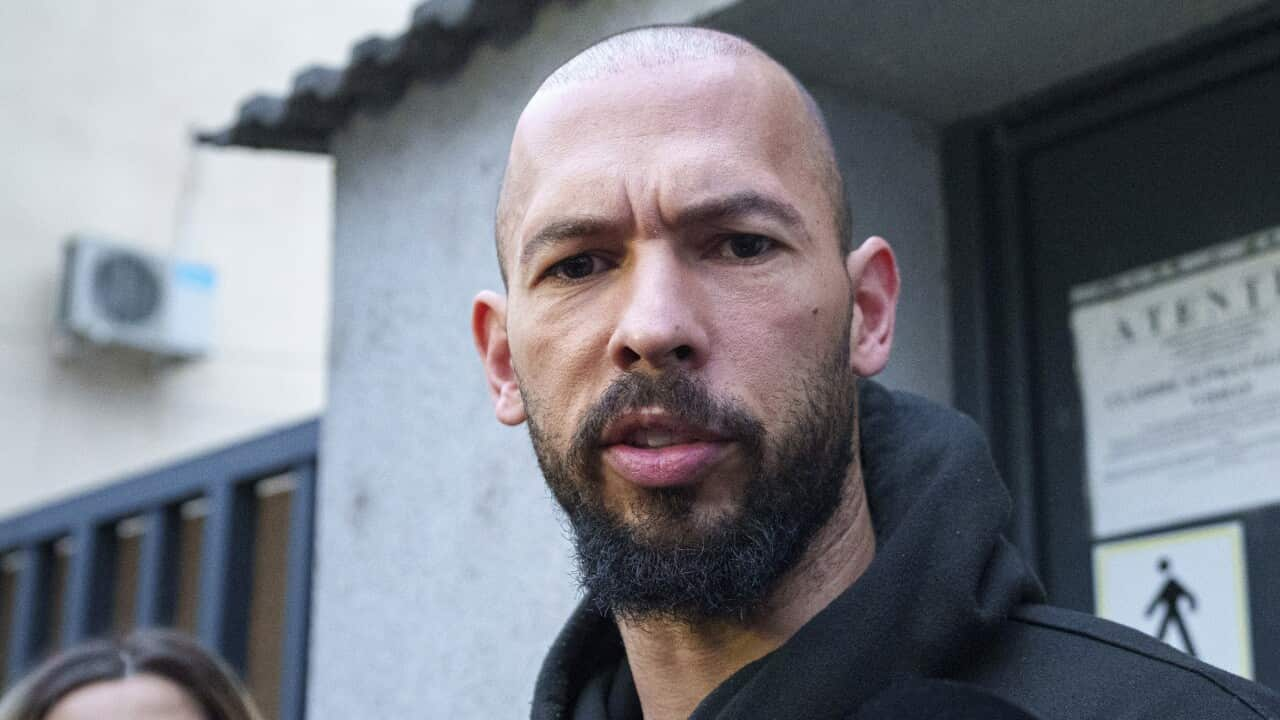Watch Romania's Webcam Girls on SBS On Demand
Stream free On Demand

Romania's Webcam Girls
episode • Dateline • Current Affairs • 29m
episode • Dateline • Current Affairs • 29m
It's after dark in Bucharest, the capital of Romania, and 27-year-old Selena (not her real name) is getting ready for work. She slips into a black lingerie bodysuit, pulls on lacy stockings and puts on makeup.
Her workplace is a queen-size bed in front of a large monitor and a camera mounted on a tripod. Within arm's reach, there's a microphone and a keyboard. She logs in online and starts warming up.
Selena is a webcam model. Using an adult live streaming platform, she performs for fans and viewers all around the world, from the United States to Australia, and chats with them in real-time — in exchange for tips. She doesn't disclose how much she makes, but the income, she says, is better than what she previously earned in the agriculture business.
It's the promise of money that draws young women into this industry, she says, especially in a country like Romania, which has some of the lowest wages in the European Union.
"There are girls that probably make even US$10,000 ($15,000) a day. So, plenty of money," she said.

Cam girl Selena during a livestream session at one of Romania’s many adult webchat studios, Models4Models, in Bucharest. Source: SBS / Dateline
With a combination of poverty, high internet speeds and low employment, those in the industry claim around 40 per cent of the total global industry is based here, earning the country the label of the cam girl capital of the world.
But Romania's thriving sex cam industry is facing new scrutiny in the wake of the arrest of . He and his brother Tristan ran an adult webcam business out of Bucharest. They were arrested in December 2022 and on charges of human trafficking, sexual abuse and rape.
Open business
Models such as Selena are increasingly managed by studios that provide them with everything they need for online work. From luxury rooms to clothes, professional lighting and virtual reality cameras, it's tech support and privacy most young women don't have at home.
"It's one of the benefits with working with a studio," says Alexa-Ioana Stefan, a representative of Models4Models. Run by two former cam models, it's one of the largest studios and operates 17 rooms across five floors of a building in Bucharest.
Over the past decade, big studios like Models4Models have been quietly pushing to legitimise the industry, moving it away from the shadowy black market to operate in the open.
They say the industry is totally legal and that they now pay taxes and employ models through copyright contracts.
They advertise publicly, some recruiting fresh young models at universities or targeted ads and live streams on social media platforms such as TikTok.

Alexa-Ioana Stefan from the registered Romanian adult cam studio Models4Models conducts a Q&A to recruit models on TikTok. Source: SBS / Dateline
Stefan said most women entering the webcam work do so for financial reasons.
"Most of the girls — to people's surprise — are women with university degrees, with master's degrees, with PhDs," she said.
"They're women with lots of degrees, who maybe have tried other jobs but were not happy with the money they made and now they're trying a new industry."
Exploitative practices
While a large number of studios operate legally, Romania's webcam industry remains unregulated and has faced allegations of sexual exploitation.
"I think the studio always put a lot of pressure on you," says Oana Maria Zaharia, a former webcam model, now a journalist and model on the OnlyFans site.
"They always try to push your limit a little bit, like spend more time in front of the camera, or do things you don't really want to do."
She says she regularly witnessed studio middlemen — such as supervisors, trainers or chatters who write on behalf of models during livestreams — manipulate models into breaking their boundaries.
Three former cam girls, agreed to speak with Dateline on the condition of anonymity about a practice known as 'meet-ups', where cam models are manipulated, threatened and coerced into having sex with clients in person.
While cam studios say they strictly forbid 'meet-ups', cam girls say the practice is widespread.
Arya (not her real name) started working as a cam girl with a registered studio on her 18th birthday. At first, she was making good money, but soon the studio started to cut into her earnings.
Then the studio manager made her a proposition: to meet with a client at a hotel.
"He was suggesting having sex with clients. He would take a cut because this is what my colleagues that make a lot of money actually do," she said. "It was pimping by the book."

Oana Maria Zaharia is a former webcam model who turned her back on the industry. Source: SBS / Dateline
A link between webcamming and sex trafficking
The case of Andrew Tate and cam model testimonies is now prompting some of the country's leading human trafficking experts to raise the alarm.
Silvia Maria Tăbușcă is a leading human rights lawyer who has been combatting organised crime, human trafficking and smuggling in Romania for 20 years.
Working with the European Union's top police agencies and regulatory bodies, she fears the connection between webcamming and human trafficking extends far beyond the case of Andrew Tate.
"It's clear that we have a challenge related to human trafficking in general. We cannot really understand at this moment the real dimension, because we haven't looked into this until now. [But] we do believe that if you look into something, you really find the problem," she told SBS Dateline.

Many illegal, unregistered cam studios in Romania can be run from non-descript apartment blocks, registered as different businesses like photo studios or online PR companies. Source: SBS / Dateline
Romania's National Agency Against Trafficking in Persons, which is responsible for monitoring cases of human trafficking, confirmed to Dateline: "There is an increasing trend in the online recruitment of victims of human trafficking, and at the same time, the exploitation of some victims can also happen online, through platforms specialised in pornography."
The agency says it's combatting this issue through "prevention campaigns".
Contacted by Dateline, police in the district of Bacau — a city known for illegal, unregistered adult cam studios — confirmed that in 2021: "they sent five people and one company to court for crimes relating to running an organised criminal group, human trafficking, pimping, child pornography and sexual intercourse with a minor."
Bacau County Police also said in the last five years it investigated four cases involving the crime of tax evasion, and the non-declaration of income obtained from video chat activities.
On the practice of 'meet-ups', Tăbușcă says the difference between prostitution and trafficking is the will of the person to get involved in that activity.

Silvia Maria Tăbușcă is a leading human rights lawyer fighting against human trafficking in Romania. Source: SBS / Dateline
Tăbușcă has worked with prosecutors on several trafficking cases involving camming studios.
In one case, she says two Romanian cam girls were threatened and blackmailed into meeting with clients in person and trafficked internationally.
"[They] attended a party in Dubai with businesspersons. [The clients] paid 100,000 euros ($163,000) for each of them for a week to spend with them in this party, and [the girls] have to perform everything that is requested of them."
"One of the girls was asked to have sex with a camel. And she didn't want to perform that request. So she was very violently beaten by the participants."
Cam models and human trafficking experts are now calling for greater regulation of the industry, pointing out the industry still isn't officially recognised by Romania's tax office (there's no official business code for it).
But beyond the trial of Tate brothers, it remains a blind spot for both Romania's politicians and police.
"It's possible that the decision-makers, the politicians, they do not really understand how large the dimension of this phenomenon is in Romania," says Tăbușcă.
"There is no political will in Romania to change the legislation in order to really fight against this phenomenon."













